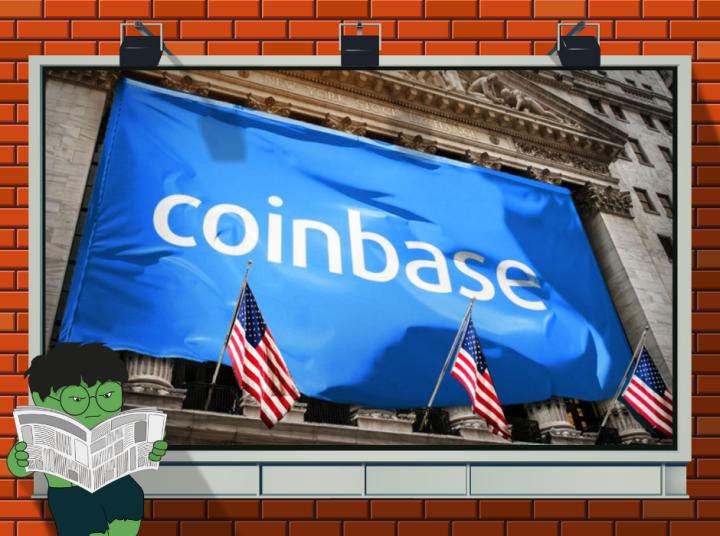After the release of the US non-farm payrolls data last night, the global financial market was shaken. The increase in non-farm payrolls was 114,000, weaker than the expected 175,000. The key point was that the unemployment rate soared to 4.3%, far exceeding expectations and triggering the so-called "Sahm rule", sending the strongest signal that the US economy is in recession.
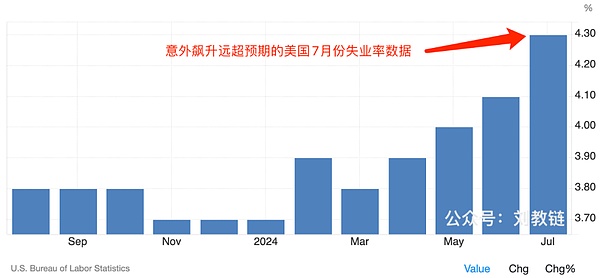
Sam's Law is an empirical rule: when the average unemployment rate for three consecutive months exceeds the low point of the previous year by 0.5%, the US economy will inevitably fall into recession. How effective is this indicator? It is almost always accurate and has never failed. The following figure shows the corresponding relationship between the Sam's Law indicator data since 1949 (blue curve) and the US economic recession (gray vertical stripes).
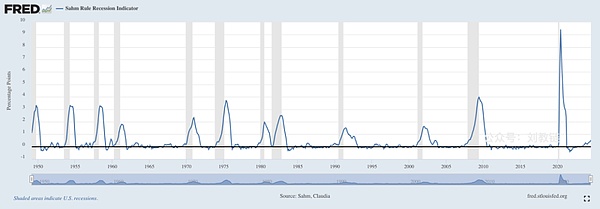
Judging from the reaction of the U.S. stock market and the global market, people's fear of economic recession still overwhelmed the joy of the Federal Reserve's upcoming interest rate cut. On Friday, U.S. stocks closed down across the board, with the S&P 500 down 1.8%, the Nasdaq down 2.4%, and the Dow Jones down nearly 610 points.
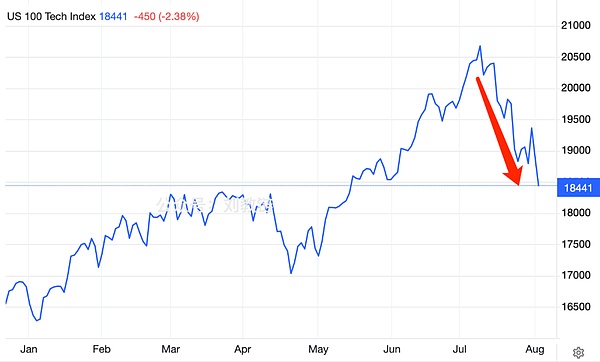
Although Powell raised the white flag at the interest rate meeting at the end of July, he did not make a decision to cut interest rates immediately, but instead postponed the expectation of a rate cut to September.
Just two days later, the situation suddenly changed. The unexpected employment data perfectly matched Powell's "forecast". However, no matter how the US stock market plummeted, it was impossible to turn back time and let Powell reopen the interest rate meeting at the end of July and announce that interest rates would be cut immediately in August without delay.
The financial game between China and the United States, which was jokingly called "hypoglycemia vs. hypertension" by netizens, has finally ended. After 15 years of hard work, the dawn is about to come. The offshore RMB has suddenly appreciated against the US dollar, and the USD/CNH has broken through the 7.2 mark. Indistinctly, the charge has been sounded. The loud horn sound tore through the thick darkness. The sky in the east is turning pale.
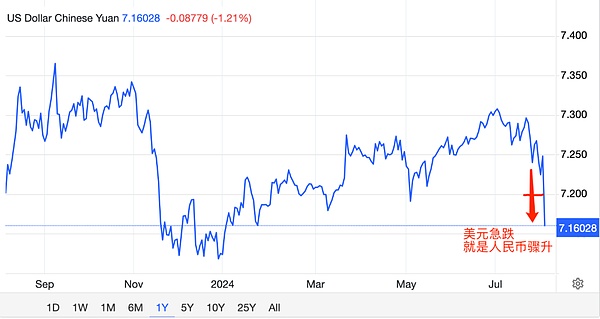
Last year, Jiaolian wrote a trilogy about this final battle.
The first article, "Artificial Prosperity", points out that the false economic prosperity obtained by the United States due to helicopter money will be exhausted by the end of 2023 and the beginning of 2024. Economic recession is a foregone conclusion. The second article, "Shooting the Cow from Across the Mountain", talks about China's countercyclical adjustment of not cooperating with the US interest rate hike, actively puncturing the asset bubble, and resolutely defending the stability of the exchange rate, which will inevitably drain the global capital back to the United States and become a booster to push the United States toward collapse. The third article, "Swordsmanship on Mount Huashan", focuses on how the US dollar interest rate hike cycle cooperates with the over-issuance of US debt, changing the cage and replacing the bird, diluting and harvesting the wealth in the hands of people all over the world. China seized the opportunity of the dollar's contraction and lent the US dollars it earned to countries on the verge of collapse to repay their debts, agreeing that they would repay in RMB later, thus interrupting the performance of the classic script that countries should have leveraged and collapsed and bankrupted during the US dollar interest rate hike cycle, and replaced it with a new script where the people of the world smiled and waited for the US high interest rate to explode.
What we want is not the real collapse of the United States, but a play of collapse. Once the play of collapse is played, the U.S. stock market will be on the verge of collapse, the U.S. economy will decline, and it will have a "hard landing" and fall to pieces. Once the Federal Reserve is scared, it will withdraw its high interest rate magic and quickly cut interest rates.
The curtain opens and falls, who is the guest?
A small part can reveal a big part. In fact, from the fact that many KOL in the Chinese community in China have been talking about the US stock market rising and not falling, and the comments section is full of "fixed investment in the Nasdaq", we can foresee that the US stock market is about to reach a peak. After all, such a huge bubble cannot be filled by these small leeks who fill the comment section. This is the same as when the grandpa and aunt selling vegetables began to rush into the A-share market, it was an indicator that the A-share market had reached its peak.
Remember, the mathematical principle of taking over is that only when larger funds and players enter the market to take over, can the market continue to rise. If a market falls to the point where small shrimps have to be taken over by large institutions, then what follows can only be a terrible decline and harvest.
Why can BTC continue to rise through cycles? It is because speculators take over from the early veterans, companies take over from speculators, ETFs take over from companies, and later sovereign countries will take over from everyone...
Don’t be foolish enough to believe the nonsense that “the U.S. stock market will collapse if the Fed cuts interest rates”. This is simply confusing cause and effect and confusing right and wrong. It is obvious that the U.S. stock market is on the verge of collapse, and the Fed has no choice but to cut interest rates and release money to save the market.
The burning desire of the US stock market and the secretive Federal Reserve are like a boy and a girl who are more than friends but less than lovers, shyly testing each other, and no one dares to take that step. It was the US stock market that took the first step and broke the window paper. Once it was broken, the Federal Reserve would no longer have to hide. The two young and white bodies rolled together.







